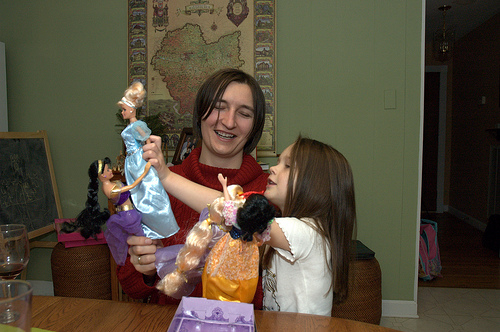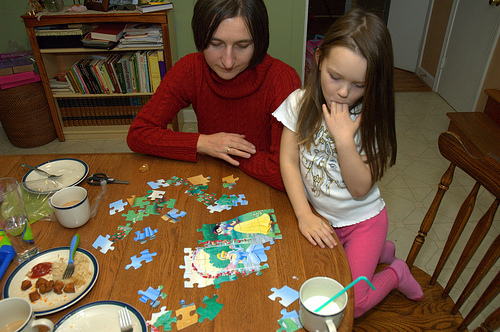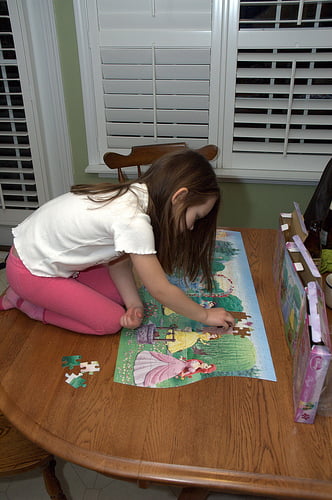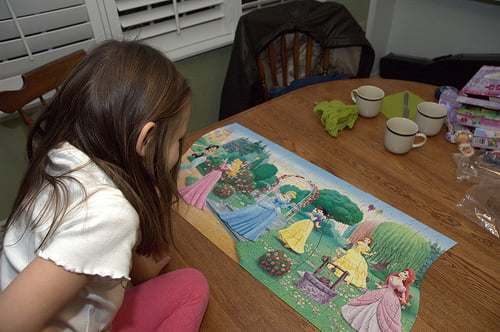“Do you dream of being a princess?” coos one of L’s Christmas gifts before offering game-play options.
Why does L have such an obsession with princesses? It’s not like we initiated it, though we’ve done very little to encourage or to discourage it. (Relatives are a different story!)
Granted, L has watched the films several times: Cinderella, Sleeping Beauty, The Little Mermaid, and several other princess films. She has a few princess books — usually thick books we refer to as “the princess collection” and “the other princess collection.”
“Do you dream of being a princess?”
My concern is not necessarily the notion of being a princess; it’s the notion of being a twenty-first century princess, a highly sexualized image that encourages girls to flirt in grade school and has teen fashion magazines offering advice on the cover for how to have a “sexy beach” hair do.
“It’s a long way off,” some might say. “She’s only four.” When I hear stories of six-year-olds getting cell phones, though, I realize the pressure begins shortly.
Or perhaps it’s already begun, the pressure to meet society’s standards of what a “Real Girl” is like. Perhaps that’s what the princess obsession is all about.
Perhaps. It’s somewhat depressing to think that we’re entering a period during which peer pressure is as influential as — if not more than — parental influence. There’s a balance there that we are just beginning to feel out. Its contours are still nebulous because the actual relationships and ratios are still unclear. In the end, it’s all about awareness.
If only it were that simple.




Granted influence is easily used to turn our children , but with Parents like You and K our little Princess will grow to be far more !! She has not convinced any of us to think any different. They say Girls change their minds so often men can’t figure us out or keep up AND DON’T TRY !!!! HA ha LOL